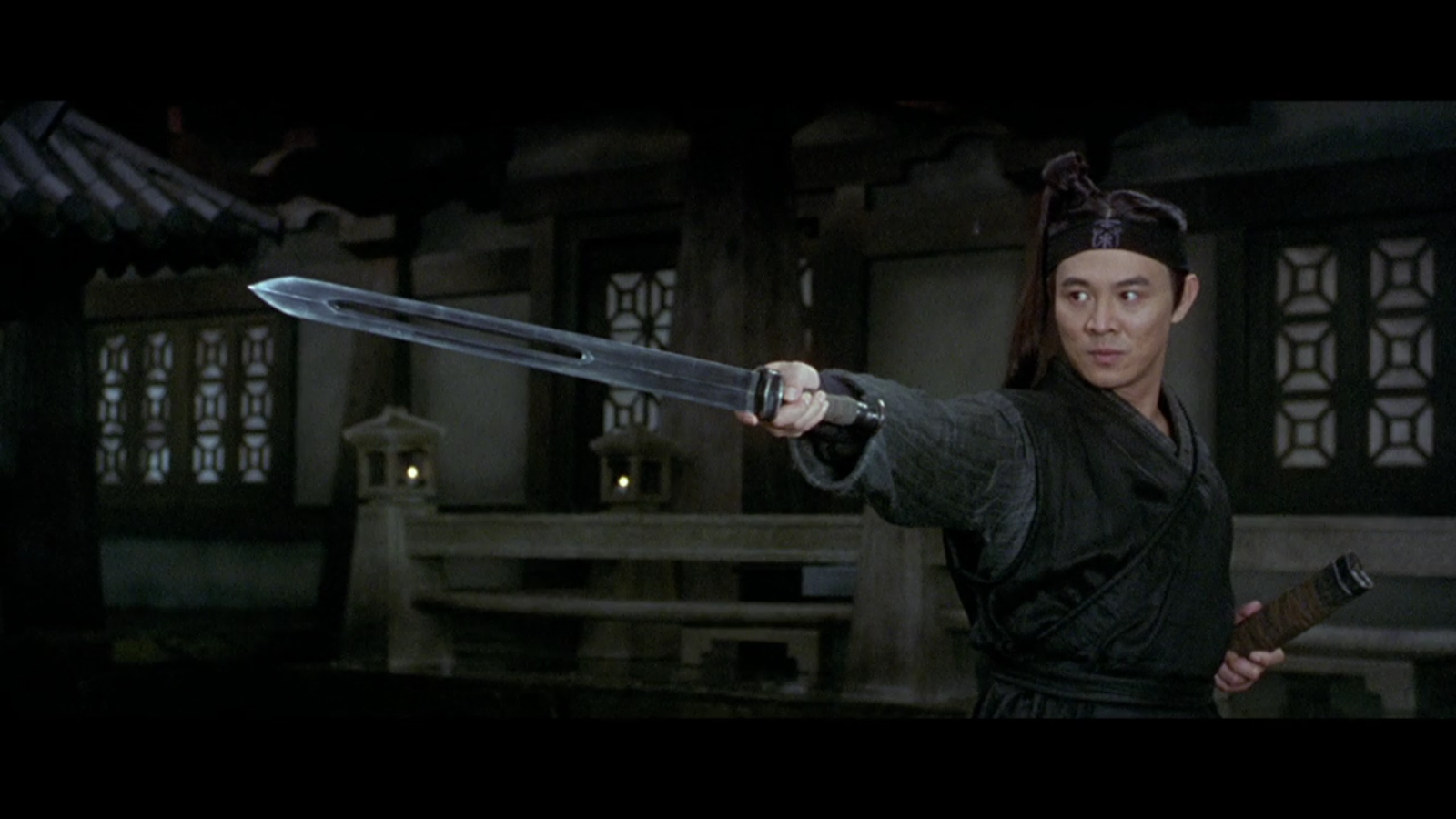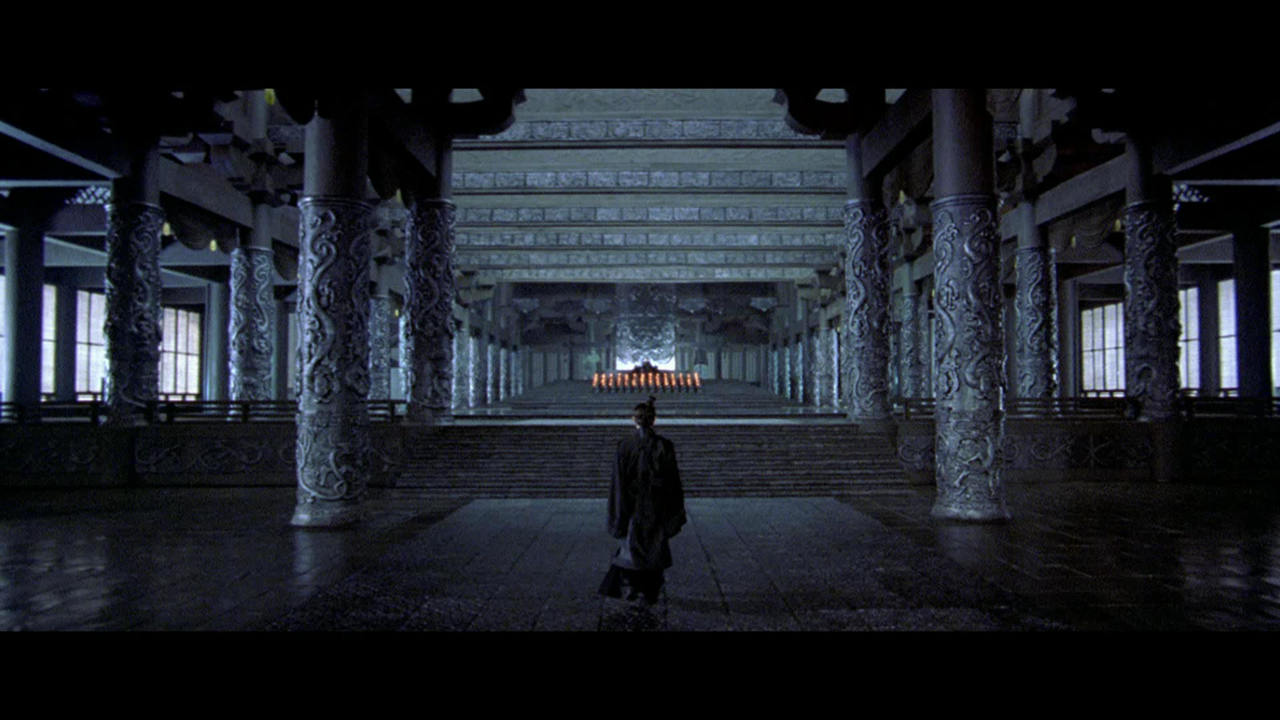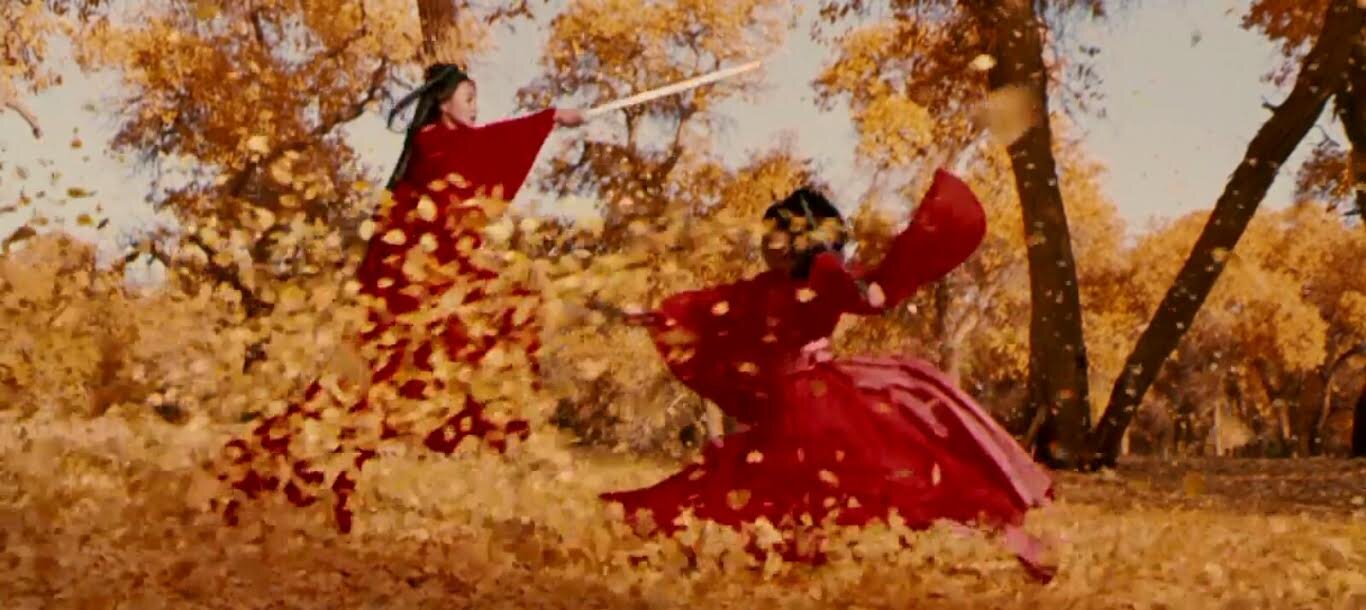Summary
One “Nameless” Hero Assassin is called before the great conqueror King to relay his account of defeating the three greatest assassins and threats to his Imperial Rule.
The Film
“Hero” blew me away when I first saw it in my early twenties. I was beginning to explore foreign cinema for the first time and martial arts was my first love. The way the action was shot, fights were beautifully choreographed, and the values of the culture differed from my own all drew me to explore films which would eventually push me into foreign films from all over the world.
For the time, however, “Hero” was simply an action movie out of step with the movies I had grown up with and accustomed to. I was too young to understand some of the political realities that affect the story and the film’s production so subtleties of a communist country influencing a story to make it more palatable to the official narrative were lost to me.
I liked the martial arts. I liked the use of color. I liked the simple narrative subversion and the nobility of the characters all around. I hadn’t seen a lot of Martial Arts movies yet but it seemed like they were mostly about one school or training style versus another or about personal revenge. Here was a film about large military conquests that was all boiled down to the battles between champions and a plot to assassinate a brutal conqueror. More my style.
As the action and story unfolded, I missed the subtleties at play in the characters. I was young and still thought love was somehow magic and couldn’t understand how a character could love someone but then go against them for ideological differences. I hadn’t faced those battles in my own life and so didn't realize that this is the most interesting drama in the film. The fights may be beautiful, subtle and born from deep internal emotion but I was missing that part of the equation until this last viewing.
Re-watching it, I was still impressed by the use of color to represent different seasons, emotions, and even versions of accounts of the same events but not like I was when I was younger. The same goes for the choreography which looks a fair bit more like dancing than fighting to me at this point. The real difference is my latest viewing is that I am more experienced in the hardships, arguments, bonds, and broken loves of life than I was. Now these fights seem less like interesting backs and forth which keep me on the edge of the seat wondering who will win and how. These questions are all fairly predictable in this film.
No. The fights in “Hero” are the emotions. Do you want to see what pain looks like? Resolve? Respect? Watch the way Jet Li (“Fearless” 2006), Tony Leung (“Chungking Express“ 1994), Maggie Chow (”In the Mood for Love,” 2000), Donnie Yen (“Ip Man” 2010) and Ziyi Zhang (Crouching Tiger, Hidden Dragon” 2000) fight in this film. The fight is not to answer the question “What happens next?” It is to answer the question “But how do they really feel.”
The communication and sharing of emotional experience is core to the art of cinema. “Hero” excels in bringing these experiences into our lives with a style that is luscious yet minimal, fights that are frenetic yet peaceful, and heroes who kill yet are willing to die for their enemies.
Review Written By:









